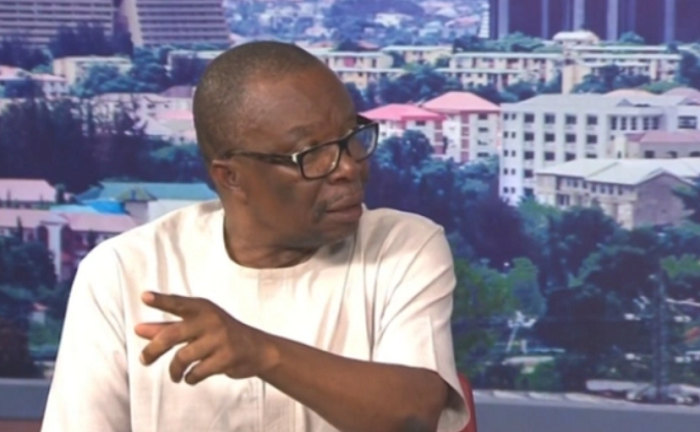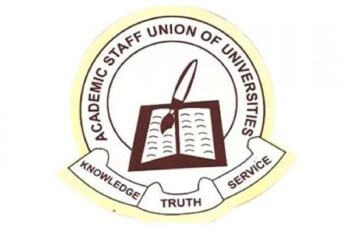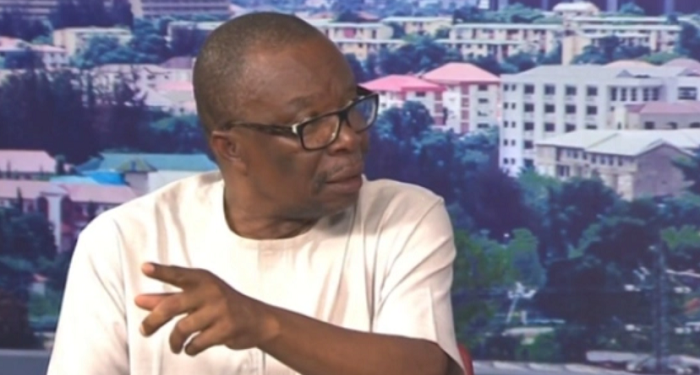The Academic Staff Union of Universities (ASUU) said it suspended its 8-month strike to obey the order of the Industrial Court for members to return to work, noting that they are law-abiding and don’t want to break the law.
While acknowledging that the issues that led to the strike have not been fully resolved, ASUU said that the striking lecturers would resume lectures nonetheless.
This was made known by the National President of ASUU, Professor Emmanuel Osodeke while appearing on a Channels Television programme, Sunday Politics.
What the ASUU President is saying
During the interview, Osodeke said, “As you have seen from our press release – although they were interventions by the Speaker (Femi Gbajabiamila) and others – the major reason we are resuming is that we are obeying the industrial court’s judgment. The issues have not been fully resolved and no agreements signed.
“We are resuming because we are a law-abiding organisation and we don’t want to break the law. We are also hoping that the intervention of the Speaker as promised by him will resolve this problem within a very short time. So, the issues have not been resolved but we would resume because of that court injunction.”
He criticised Labour Minister for court action and said lecturers are not motivated
While blaming the Minister of Labour and Employment, Chris Ngige, for taking the matter to court, Osodeke argued that the best way to tackle trade disputes involving academics is through “negotiation”.
He said, “But one of the ministers, the Minister of Labour, believes that the best way is to force them to class. But because of the interest of the Nigerian people – the students, their parents, and the Speaker who is intervening – our members will teach.’’
The ASUU President, however, said the lecturers may not be motivated to go back to class if the “no-work, no-pay” policy of the Federal Government stands, maintaining that “you cannot expect a hungry man” to be at his best.
To avoid this, Osodeke said the government “should pay the salaries” to the varsity teachers whom he added have to “meet up” with the backlog of classes missed during the strike.
What you should know
ASUU members embarked on a strike on February 14, 2022, to press home their demands on the federal government.
Some of the lecturers’ demands include funding for the revitalisation of public universities, payment of earned academic allowances, and adoption of the University Transparency Accountability Solution (UTAS) as a preferred payment option instead of the Integrated Payroll and Personnel Information System (IPPIS). Other demands include payment of promotion arrears and the renegotiation of the 2009 ASUU-FGN Agreement.
The Minister of Labour and Employment, Chris Ngige, had dragged ASUU to the National Industrial Court, seeking an order of the court to restrain striking lecturers from further continuing with the strike.
Despite a ruling by the National Industrial Court on September 21, 2022, ordering them to return to work, the university lecturers remained adamant and subsequently filed an appeal against the court ruling.
After no breakthrough in negotiations between ASUU and the Federal Government, the Appeal Court ordered the striking lecturers to resume duty immediately.
The Court also granted ASUU “conditional leave to appeal the order of the Industrial Court, while insisting that ASUU must obey the order of the lower court with effect from October 7”.
Meanwhile, Speaker of the House of Representatives, Femi Gbajabiamila, last week Friday said the country would soon hear from President Muhammadu Buhari on the protracted ASUU strike.
Gbajabiamila, who met with the President at the State House for the second time in one week over the ASUU strike, said discussions with the President were fruitful, adding that Buhari would make known his decisions to the public after reviewing the lawmakers’ recommendations.




















